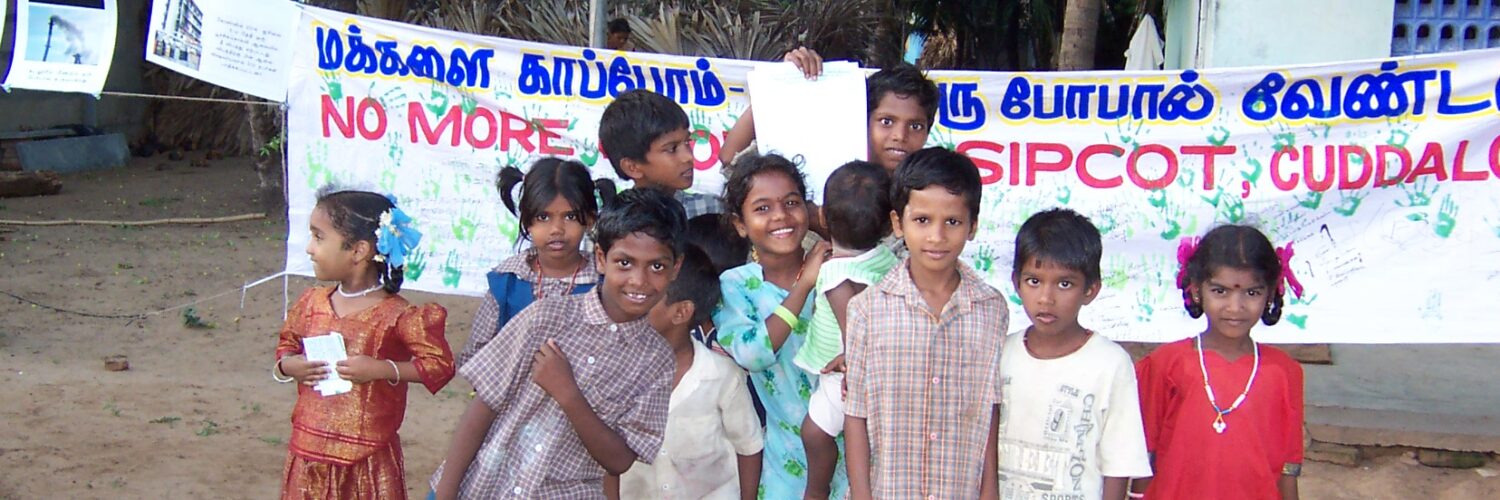PRESS RELEASE
25th June 2015
CHENNAI A new study has found high levels of toxic mercury in vegetation and sediment collected from the vicinity of Unilever’s now-closed mercury thermometer factory in Kodaikanal. The study confirms that Unilever’s contaminated factory site is contaminating the air and leaking poisons into its surroundings, including into the ecologically sensitive Pambar Shola and the Pambar River.
Community Environmental Monitoring, a Tamil Nadu based organization collected lichen, moss and sediment samples for the study in April 2015. These samples were analysed at the Department of Atomic Energy’s (DAE) National Centre for Compositional Characterisation of Materials (NCCCM) in Hyderabad. The results of the analysis show high levels of mercury contamination indicating that Unilever’s negligence continues to be an environmental and health hazard in Kodaikanal.
Mercury is a potent neurotoxin that causes brain damage and birth defects. Unilever admits it discharged 1.3 tonnes of mercury into the watershed forests, and that 366 kgs of mercury remain mixed with soil inside its factory site. Tamil Nadu Pollution Control Board (TNPCB) shut down the factory in 2001 for violating environmental laws. But Unilever has neither cleaned up the environment nor compensated its affected workers. “Unilever has an $8 billion advertising budget to project itself as an environmentally responsible business. But Kodaikanal is proof that Unilever is no different from Union Carbide which has left its victims and the environment suffering for decades,” said Nityanand Jayaraman, advisor to Community Environmental Monitoring, a program of The Other Media.
Lichen (Kall-paasi in Tamil) samples taken from near a stream emanating from the factory and flowing through the Pambar Shola Reserve Forest contained 53 mg/kg of mercury; a moss sample from the same location contained 8.68 mg/kg and one lichen sample collected from Charlemont a private property across the street (St.Mary’s Road) from the factory contained 2.96 mg/kg of mercury. Levels of more than 1 mg/kg mercury in lichen and moss indicate that the ambient air is highly contaminated with mercury. A 2003 study by the DAE reported levels of 1.32 mg/m3 of mercury in ambient air near the factory. That is 100,000 times higher than levels typical of non-contaminated areas, according to the 2003 DAE study. Kall-paasi from Kodaikanal hills is collected for sale and use as a flavouring agent in dishes such as curries and biryani.
Sediment samples collected from inside Pambar Shola too showed high levels of mercury. At 1.52 mg/kg of mercury and 0.54 mg/kg, both samples exceeded the USEPA’s health-based standards. India has no standards for mercury in sediment. The sediment sample is significant as the sediment with higher mercury levels was taken from a stream that emanates in the factory and flows into the Pambar River. Mercury enters the aquatic food chain and builds up to lethal levels and can return to poison fish consumers downstream.
Repeated letters to the Tamil Nadu Pollution Control Board demanding a scientific and transparent clean up have elicited no action. Instead, the TNPCB has shut out public participation and capitulated to Unilever’s plea to relax standards for clean-up. In 2001, Unilever assured that the factory site will be cleaned up till there is no more than 10 mg/kg of mercury in soil. Even that was 10 times weaker than standards in the UK where Unilever has its headquarters. In 2005, TNPCB worked with Unilever to downgrade clean-up levels to 25 mg/kg. At this level, nearly a fourth of the contamination would be left behind in the soil even after a full clean-up.
“Sholas are important water catchment areas. Allowing mercury to leak into the Pambar Shola is like poisoning your overhead water tank,” said Shekar Dattatri, a wildlife filmmaker and director of “Save Our Sholas”. He called for a clean-up that is protective of the Pambar shola ecosystem.
For more information, contact: Shweta Narayan 8056024315
